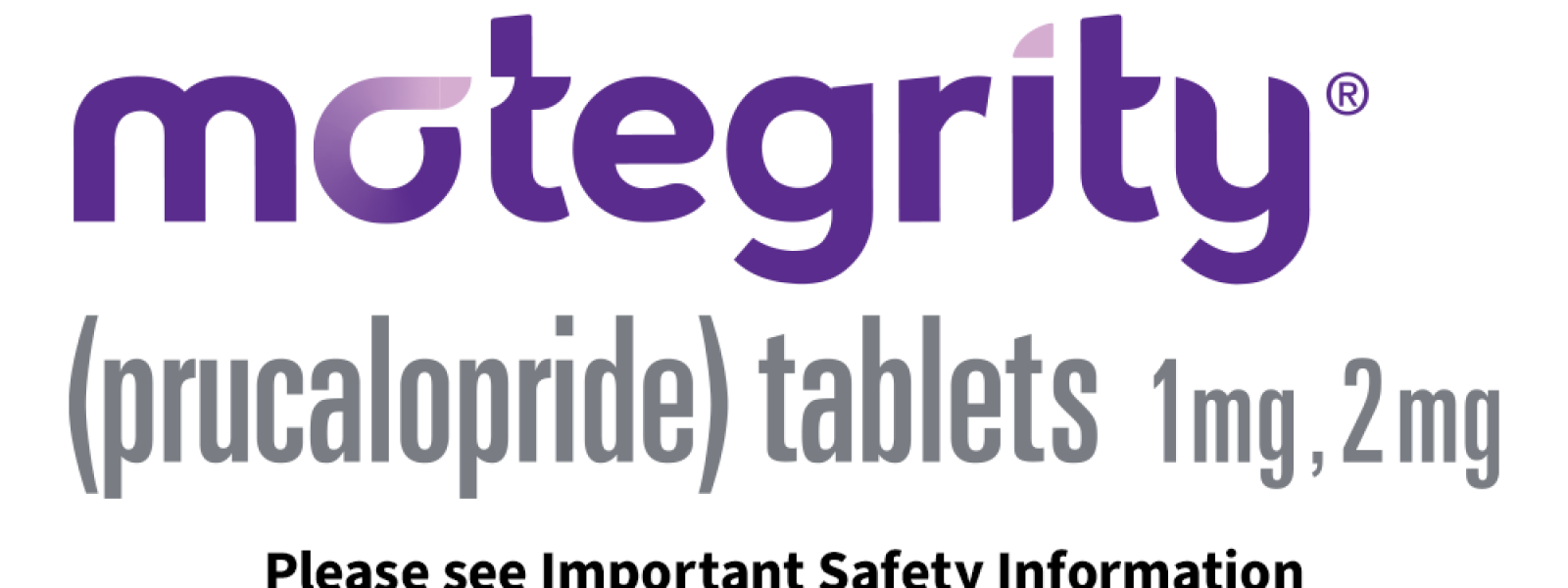Motegrity may not be covered by insurance due to being classified as a non-preferred or non-formulary drug. This can result in higher out-of-pocket costs for patients.
Motegrity, a medication used to treat gastrointestinal disorders, is not always included in insurance plans’ preferred drug lists. As a result, patients may face challenges in getting coverage for this medication. Understanding the reasons behind insurance coverage decisions can help patients navigate their options and explore alternative solutions.
We will delve into the factors influencing insurance coverage for Motegrity and provide insights on how patients can manage the cost of this medication effectively. Let’s explore why Motegrity is not covered by insurance and what options are available to patients in need of this treatment.

Credit: www.motegrityhcp.com
Introduction
Motegrity not being covered by insurance is a common concern for many individuals. This medication, often prescribed for gastrointestinal issues, may not be included in insurance plans due to its cost or classification. Patients may need to explore alternative options or pay out-of-pocket for Motegrity.
Understanding Motegrity And Insurance Coverage
Motegrity is a medication prescribed to treat gastrointestinal disorders, but many individuals are surprised to find that it is not covered by insurance. This can lead to confusion and frustration for those who rely on insurance for their healthcare needs.
In this section, we will explore the reasons behind Motegrity’s lack of insurance coverage, shedding light on this perplexing issue.
Reasons For Lack Of Insurance Coverage
- Limited Approval: Motegrity may not be included in insurance coverage due to its limited approval by regulatory authorities.
- Alternative Treatments: Insurance companies may prefer to cover alternative medications or treatments that are deemed more cost-effective.
- Lack of Medical Necessity: Some insurance providers may not consider Motegrity as a medically necessary treatment for certain conditions, leading to non-coverage.
The Impact On Patients
- Financial Burden: Patients may face a significant financial burden when having to pay out-of-pocket for Motegrity, impacting their ability to afford essential medications.
- Access to Treatment: The lack of insurance coverage for Motegrity could restrict patients’ access to a medication that is essential for managing their gastrointestinal conditions.
In this section, we have discussed the reasons behind Motegrity’s absence from insurance coverage and its potential impact on patients. In the following sections, we will delve deeper into this issue to provide a comprehensive understanding of the situation.
Why Is Motegrity Not Covered By Insurance
Motegrity may not be covered by insurance due to being considered a non-preferred medication or lacking generic alternatives. Insurance companies may require prior authorization for coverage.
- Motegrity, a medication used to treat certain gastrointestinal conditions, is not typically covered by insurance due to its classification as a newer, non-generic drug.
- Insurance companies often prioritize generic medications over brand-name drugs like Motegrity to reduce costs for both themselves and their policyholders.
- The lack of generic alternatives for Motegrity limits the negotiating power insurance companies have with drug manufacturers, making it more challenging to secure coverage.
- Additionally, insurance providers may require patients to try and fail with lower-cost medications before considering coverage for more expensive options like Motegrity.
- Limited clinical data supporting the widespread use of Motegrity in comparison to more established medications can also contribute to insurance coverage restrictions.
Factors Influencing Insurance Coverage
- Drug formularies determine which medications are covered by insurance plans, and Motegrity’s inclusion may vary depending on the specific plan.
- Insurance companies assess the cost-effectiveness of medications like Motegrity based on factors such as efficacy, safety, and overall value compared to alternative treatments.
- The absence of FDA-approved generic versions of Motegrity can further impact insurance coverage decisions, as generic drugs are typically more affordable and preferred by insurers.
- Patients prescribed Motegrity may face challenges obtaining insurance coverage due to the medication’s higher cost relative to other treatment options available for similar conditions.
- Insurance coverage for Motegrity may also be influenced by individual policy terms, copayment requirements, and prior authorization criteria set by insurers.
Motegrity: Mechanism Of Action
Motegrity works by activating serotonin receptors in the gut to improve motility. Due to being a newer medication, Motegrity may not be covered by insurance as it is not yet widely recognized for reimbursement.
Motegrity is a medication used to treat gastrointestinal disorders, specifically chronic idiopathic constipation. It works by targeting serotonin receptors in the gut, leading to increased gastrointestinal motility.
How Does Motegrity Work?
- Motegrity acts on specific serotonin receptors in the gastrointestinal tract, increasing the contractions of the intestines, which helps move stool through the digestive system.
- By targeting serotonin receptors, Motegrity promotes the natural movement of the intestines, providing relief for individuals experiencing chronic idiopathic constipation.
The Role Of Serotonin Receptors
- Serotonin receptors are vital in regulating the movement and function of the gastrointestinal tract.
- Motegrity’s action on serotonin receptors enhances the natural motility of the intestines, aiding in the relief of constipation.
Motegrity’s mechanism of action involves targeting serotonin receptors in the gut to promote gastrointestinal motility, providing relief for individuals with chronic idiopathic constipation. Understanding its mechanism of action can help patients comprehend how the medication works to alleviate their symptoms.
Motegrity: Efficacy And Benefits
Motegrity offers effective relief for gastrointestinal issues, but isn’t typically covered by insurance due to its classification. Despite its benefits, patients may need to explore alternative payment options for this medication.
Motegrity is a medication commonly used to treat gastrointestinal disorders such as chronic idiopathic constipation. Here’s a look at its efficacy and benefits:
- Enhanced Gastrointestinal Transit: Motegrity promotes enhanced gastrointestinal transit, which helps alleviate symptoms of chronic idiopathic constipation.
- Improved Bowel Movements: This medication aids in promoting regular and improved bowel movements, providing relief to individuals suffering from chronic constipation.
- Minimal Side Effects: Motegrity is known for its minimal side effects, making it a favorable option for those seeking relief from gastrointestinal issues.
Insurance Coverage: Factors At Play
Motegrity may not be covered by insurance due to several factors including the specific insurance plan, formulary restrictions, and the drug’s classification. Insurance coverage for medications is influenced by various considerations such as clinical efficacy, safety, and cost-effectiveness. These factors play a significant role in determining the coverage of specific medications like Motegrity.
Motegrity is a medication that is used to treat chronic idiopathic constipation, but it is not covered by insurance. This can be a concern for patients who rely on insurance to cover their medication costs. We will explore the reasons why Motegrity is not covered by insurance, focusing on the factors that are at play.
Lack Of Fda Approval
One of the reasons why Motegrity is not covered by insurance is that it has not been approved by the FDA for use in the United States. While the drug has been approved for use in other countries, it has not yet been approved for use in the US.
As a result, insurance companies may be hesitant to cover the cost of the medication.
High Cost
Another factor that may contribute to Motegrity’s lack of insurance coverage is the high cost of the medication. According to GoodRx, the average retail price for a 30-day supply of Motegrity is around $400. This high cost may make it difficult for insurance companies to justify covering the medication, especially if there are lower-cost alternatives available.
Lack Of Clinical Data
Insurance companies may also be hesitant to cover Motegrity because of a lack of clinical data. While the drug has been shown to be effective in clinical trials, there may not be enough data available to convince insurance companies to cover the cost of the medication.
This lack of data may also make it difficult for doctors to justify prescribing the medication to their patients.
Alternative Treatments
Finally, insurance companies may be reluctant to cover Motegrity because there are other treatments available for chronic idiopathic constipation. These treatments may be less expensive or have a longer track record of success, making them more attractive to insurance companies.
Patients who are interested in Motegrity may need to work with their doctors and insurance companies to determine if the medication is the right choice for them.
Motegrity is not covered by insurance for a variety of reasons, including a lack of FDA approval, high cost, lack of clinical data, and the availability of alternative treatments. Patients who are interested in Motegrity may need to work with their doctors and insurance companies to determine if the medication is the right choice for them.
Challenges In Obtaining Insurance Coverage
Facing challenges in obtaining insurance coverage is common, with Motegrity not being covered due to its classification. Patients often encounter hurdles navigating the complexities of insurance policies when seeking reimbursement for this medication. The lack of coverage for Motegrity can pose financial burdens on individuals requiring this treatment.
Motegrity is a medication that is used to treat chronic idiopathic constipation (CIC). Unfortunately, it is not covered by most insurance companies, which makes it challenging for many patients to obtain this drug. In this blog post, we will discuss the challenges in obtaining insurance coverage for Motegrity.
Lack Of Fda Approval
Motegrity was approved by the FDA in January 2019, but it has not yet been added to the list of drugs that are covered by most insurance companies. This means that patients who need Motegrity must often pay for it out of pocket, which can be costly.
Lack Of Clinical Trials
Another reason why Motegrity is not covered by insurance is that there are limited clinical trials that support its efficacy. Insurance companies are hesitant to cover drugs that have not been extensively tested and proven to be effective in treating the targeted condition.
Alternative Medications
Insurance companies may also be hesitant to cover Motegrity because there are alternative medications available that are covered by insurance. These medications may be less expensive or have a longer track record of success in treating CIC.
High Cost
Even when Motegrity is covered by insurance, it can be expensive. Patients may still have to pay a significant amount out of pocket, which can be a barrier to obtaining the medication.
Prior Authorization
Some insurance companies require prior authorization before covering Motegrity. This means that patients must go through a lengthy process to obtain approval from their insurance company before they can receive the medication.
Appeals Process
Patients who are denied coverage for Motegrity may have to go through an appeals process to obtain coverage. This process can be time-consuming and frustrating, and there is no guarantee that the appeal will be successful.
Limited Coverage
Even when insurance companies do cover Motegrity, they may only cover a limited amount. This can be a problem for patients who need to take the medication long-term.
Lack Of Awareness
Finally, some patients may not be aware that Motegrity is not covered by insurance. They may assume that their insurance will cover the medication, only to find out later that it is not covered.
There are several challenges in obtaining insurance coverage for Motegrity. These include lack of FDA approval, limited clinical trials, alternative medications, high cost, prior authorization, appeals process, limited coverage, and lack of awareness. Patients who need Motegrity should work with their healthcare provider and insurance company to explore all options for obtaining the medication.
Appealing Insurance Denials
Facing insurance denials for Motegrity can be frustrating. It’s important to understand why insurance may not cover this medication. Navigating the appeals process and seeking alternative options can help in addressing this issue.
When facing insurance denials for Motegrity coverage, it can be frustrating and overwhelming. However, there are steps you can take to appeal these denials and potentially obtain insurance coverage for Motegrity. Below are some strategies to consider when appealing insurance denials:
- Gather supporting medical documentation: Provide comprehensive medical records, test results, and physician notes that demonstrate the necessity of Motegrity for your condition. This supporting documentation can strengthen your appeal by illustrating the medical need for this specific treatment.
- Obtain a letter of medical necessity: Ask your healthcare provider to write a letter explaining why Motegrity is essential for managing your condition. This letter should outline the specific benefits of Motegrity and why other treatment options may be ineffective or unsuitable for your situation.
- Research insurance coverage policies: Familiarize yourself with your insurance provider’s coverage policies and guidelines regarding Motegrity. Understanding the criteria for coverage can help you tailor your appeal to align with the insurer’s requirements, increasing the likelihood of a successful outcome.
- Seek assistance from a patient advocate or healthcare professional: Patient advocates or healthcare professionals experienced in navigating insurance appeals can provide valuable support and guidance throughout the appeals process. They can offer insights into effective strategies and help you articulate your case persuasively.
By following these steps and approaching the appeals process diligently, you can enhance your chances of overturning insurance denials and securing coverage for Motegrity. Remember that persistence and thorough preparation are key when appealing insurance decisions.
Patient Advocacy And Support
Motegrity is not covered by insurance, leaving patients to navigate the complex healthcare system on their own. Patient advocacy and support are crucial in helping individuals understand their options, access resources, and advocate for coverage of necessary treatments. It’s important to seek out support and resources to navigate insurance challenges.
- Patients struggling to afford Motegrity may feel overwhelmed and in need of guidance. Here are some ways patient advocacy and support can help:
- Financial Assistance Programs: Many pharmaceutical companies offer financial assistance programs to help patients access their medications at a reduced cost. These programs can provide financial relief to patients who qualify based on specific eligibility criteria.
- Insurance Appeals: Patient advocates can assist individuals in navigating the insurance appeals process. By advocating for coverage of Motegrity, patients can work towards obtaining insurance approval for their medication.
- Support Groups: Joining support groups can provide individuals with emotional support and practical advice. Engaging with others who are facing similar challenges can offer a sense of community and understanding.
By utilizing patient advocacy and support resources, individuals can access valuable assistance in their journey to obtain affordable access to Motegrity.
Conclusion
Motegrity is not covered by insurance due to its recent introduction to the market and lack of generic alternatives. The medication’s high cost and limited clinical data also contribute to its lack of insurance coverage.
Motegrity Insurance Coverage: Why It’s Not Always An Option
When it comes to Motegrity insurance coverage, there are several factors contributing to why it may not be covered by insurance providers. Let’s delve into the reasons behind this and understand why obtaining insurance coverage for Motegrity can be challenging for many individuals.
Lack Of Generic Alternatives:
- Motegrity is a brand-name medication with no generic substitutes available.
- Insurance companies often prefer generic medications due to their lower cost, leading to limited coverage for brand-name drugs like Motegrity.
Limited Fda-approved Indications:
- Motegrity is approved by the FDA for specific gastrointestinal conditions.
- Insurance companies may restrict coverage to only FDA-approved indications, limiting access to Motegrity for off-label uses.
Tiered Formularies:
- Insurance plans typically have tiered formularies that categorize medications based on cost.
- Motegrity may fall under a higher tier, requiring patients to pay more out-of-pocket or face coverage limitations.
Prior Authorization Requirements:
- Insurance companies may require prior authorization for medications like Motegrity.
- This process can be time-consuming and may result in coverage denials, making it challenging for patients to access Motegrity.
The lack of generic alternatives, limited FDA-approved indications, tiered formularies, and prior authorization requirements are key reasons why Motegrity may not be covered by insurance. Understanding these factors can help individuals navigate insurance challenges and explore alternative options for accessing Motegrity when needed.
References
Motegrity is not covered by insurance because it is considered a new medication and not yet on the list of covered drugs. Patients may have to pay out of pocket or find alternative treatment options. It is important to discuss options with a healthcare provider.
- The National Institute for Health and Care Excellence (NICE) published guidance recommending prucalopride (Motegrity) as an option for treating chronic constipation in women in September 2019.
- The European Medicines Agency (EMA) also authorized the use of prucalopride for chronic constipation in women in 2009.
- The American College of Gastroenterology (ACG) guidelines suggest considering prucalopride for patients with chronic constipation.
- The European Society for Neurogastroenterology and Motility (ESNM) also recommends prucalopride for the treatment of chronic constipation in women.

Credit: www.motegrity.com
Conclusion
As we explore why Motegrity isn’t covered by insurance, it’s evident that cost remains a barrier for many. Despite its effectiveness, navigating coverage options can be challenging. Understanding the reasons behind this can help individuals make informed decisions about their healthcare.
It’s essential to seek alternative solutions for affordability.




